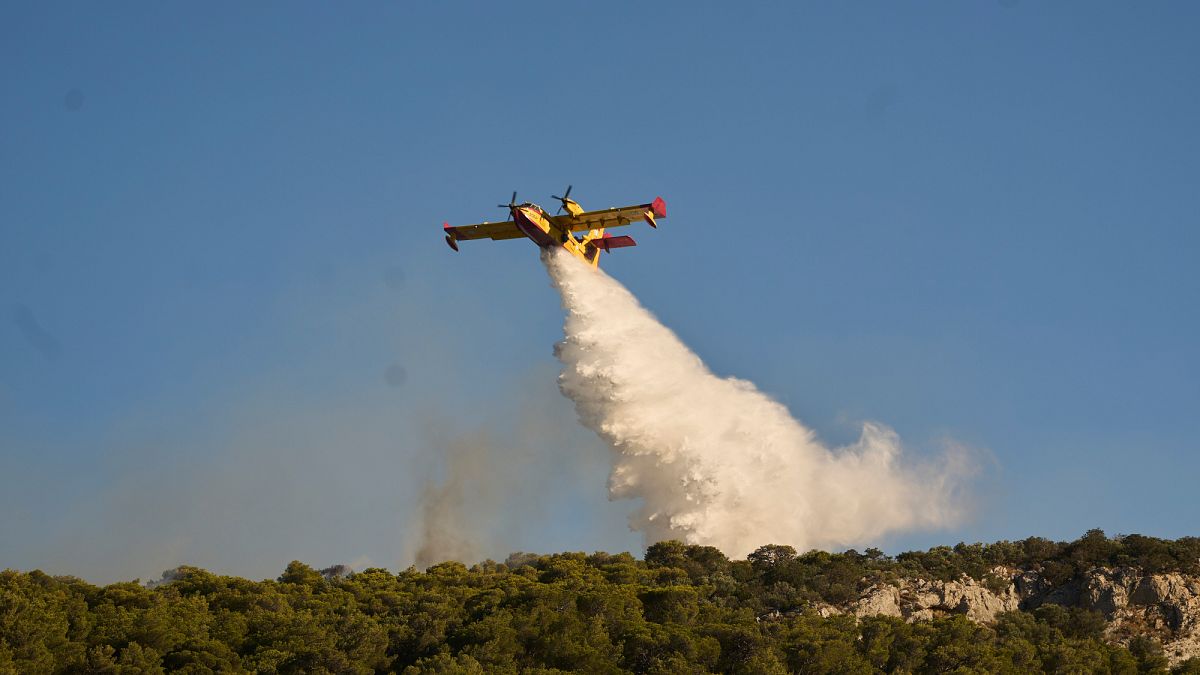

In recent times, various regions across the globe have demonstrated resilience in the face of climate-related challenges, effectively managing immediate crises while navigating longer-term environmental issues. This synthesis brings together different stories from around the world, highlighting both the pressing impacts of climate events and the proactive efforts to address them.
In Greece, efforts by firefighting crews have brought under control the wildfires that erupted near Asprochori in Oropos and on the island of Thassos. These blazes started on a recent Wednesday, close to the nation’s capital, Athens. Authorities report that as of now, the fires are largely contained, bringing relief to local communities and allowing for a more profound reflection on the preventive measures and responses utilized. The successful containment of these fires underscores the importance of preparedness and rapid response in mitigating the impact of wildfires, which have become increasingly common due to hotter, drier climates worldwide.
Meanwhile, in Europe, a broader conversation on climate policies continues to unfold. EU Climate Commissioner Wopke Hoekstra has expressed concerns over the United States’ retreat from its climate commitments under the Trump administration, labeling it as a “major blow” to global climate efforts. During The Europe Conversation, Hoekstra noted the significant consequences this stance could have on the planet. His comments came in the context of the EU unveiling an ambitious roadmap that aims to reduce polluting emissions by 90% by 2040. The European Union’s proactive stance is a positive step toward meaningful change, serving as a beacon of hope for coordinated international efforts aimed at tackling climate change.
This call for action is underscored by recent events in Pakistan, where accelerated glacial melting and heavy monsoon rains have led to deadly floods and landslides. Record-breaking summer temperatures have exacerbated these conditions, igniting fears reminiscent of the devastating 2022 floods. Since late June, the country has experienced significant rainfall, resulting in a tragic loss of life, with at least 72 people killed and more than 130 injured. The flooding has battered infrastructure, leaving communities vulnerable and in need of urgent assistance.
Such environmental events spotlight the interconnectedness of climate challenges across geographies. The glacial melt and seasonal floods in Pakistan are stark reminders of the complex effects climate change can have, especially in regions where natural geological processes are already dynamic and sensitive to temperature variations. They emphasize the necessity for adaptive strategies that incorporate both immediate disaster response and long-term resilience planning.
As these stories illustrate, the global narrative around climate change is multifaceted. It involves both addressing the immediate impacts through local action and mobilizing international partnerships to advance stringent climate policies. While Greece and Pakistan handle urgent climate impacts on the ground, the European Union’s strategic roadmap offers a model for a collaborative and forward-thinking approach aimed at serious emission reductions. These varied responses remind us of the importance of community, preparedness, and innovation in the sustained effort to combat global climate change.
Ultimately, tackling climate change requires a harmonious blend of immediate interventions and comprehensive policy frameworks. Each story from Greece, Europe, and Pakistan contributes to a greater understanding of our collective role in fostering a sustainable future. It is through the recognition of shared challenges and the commitment to resilient solutions that a path forward emerges—one where every action counts in nurturing a balanced relationship with our planet.
Source: {link}
